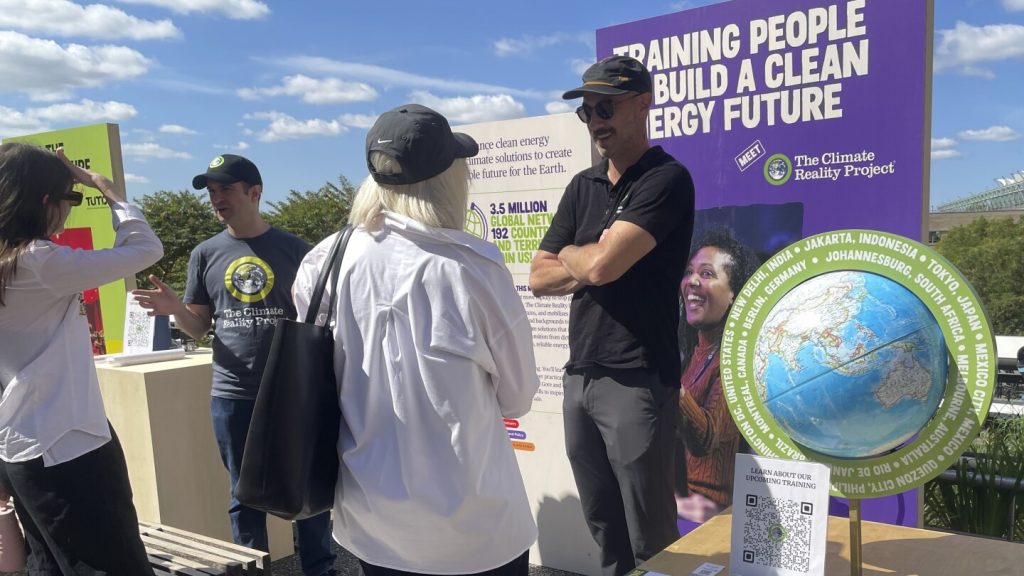As world leaders gathered at the United Nations for the annual General Assembly meeting, a climate science fair organized by the Emerson Collective took place in Manhattan. This fair focused on showcasing solutions for climate change that could have immediate impacts, contrasting the closed-door meetings of the U.N. General Assembly. The Emerson Collective, funded by billionaire Laurene Powell Jobs, brought together nonprofits, advocacy organizations, and companies to highlight the importance of addressing urgent environmental issues.
The climate science fair was just one of many events that occur in September alongside the official U.N. meetings, where nonprofits, advocates, and fundraisers come together to lobby world leaders and discuss pressing global challenges. These events often take place in elite spaces, where stakeholders aim to influence decision-makers and secure funding for their causes. However, the stakes are higher than ever, with an increasing number of people in need of humanitarian assistance, particularly children. UNICEF emphasized the importance of private sector and philanthropic involvement in addressing these crises.
At the Goalkeepers event hosted by the Bill & Melinda Gates Foundation, Microsoft co-founder Bill Gates called for nations to fully fund initiatives like the vaccines alliance GAVI and invest in reducing malnutrition. Philanthropic organizations play a critical role in complementing government resources, offering flexibility and long-term support that public funding may not provide. Brazilian President Luiz Inácio Lula da Silva emphasized the significance of public policies in addressing extreme poverty, urging leaders to prioritize sustainable solutions over charitable donations.
Civil society organizations like Oxfam play a crucial role in holding governments accountable to their commitments, particularly in achieving the Sustainable Development Goals set in 2015. By advocating for specific language changes in international agreements, these groups aim to ensure that gender equality and other important issues are prioritized in global development efforts. Despite not having a formal role in negotiations, civil society groups are integral in driving progress and implementing promises made by nation states.
At the Free Future 2024 conference, funders focused on combating gender-based violence discussed the overwhelming demand for support from feminist organizations worldwide. The UN Trust Fund, dedicated to addressing violence against women and girls, highlighted the urgent need for funding to address the persistent challenges faced by marginalized communities. Elsewhere, the UN’s sexual and reproductive health agency announced new funding commitments, including a $100 million pledge from British hedge fund billionaire Sir Chris Hohn. These investments are seen as crucial “best buys” in development, yet funding gaps persist in crucial areas like family planning and health services.
Overall, the gatherings and discussions among philanthropic organizations, nonprofits, and world leaders underscore the complex and interconnected challenges facing the global community. As civil society groups continue to advocate for greater accountability and funding for critical issues like climate change, gender equality, and health services, the importance of collaboration between different sectors becomes increasingly apparent. With ongoing crises and growing demands for support, the role of philanthropy and nonprofits in driving positive change on a global scale has never been more crucial.


